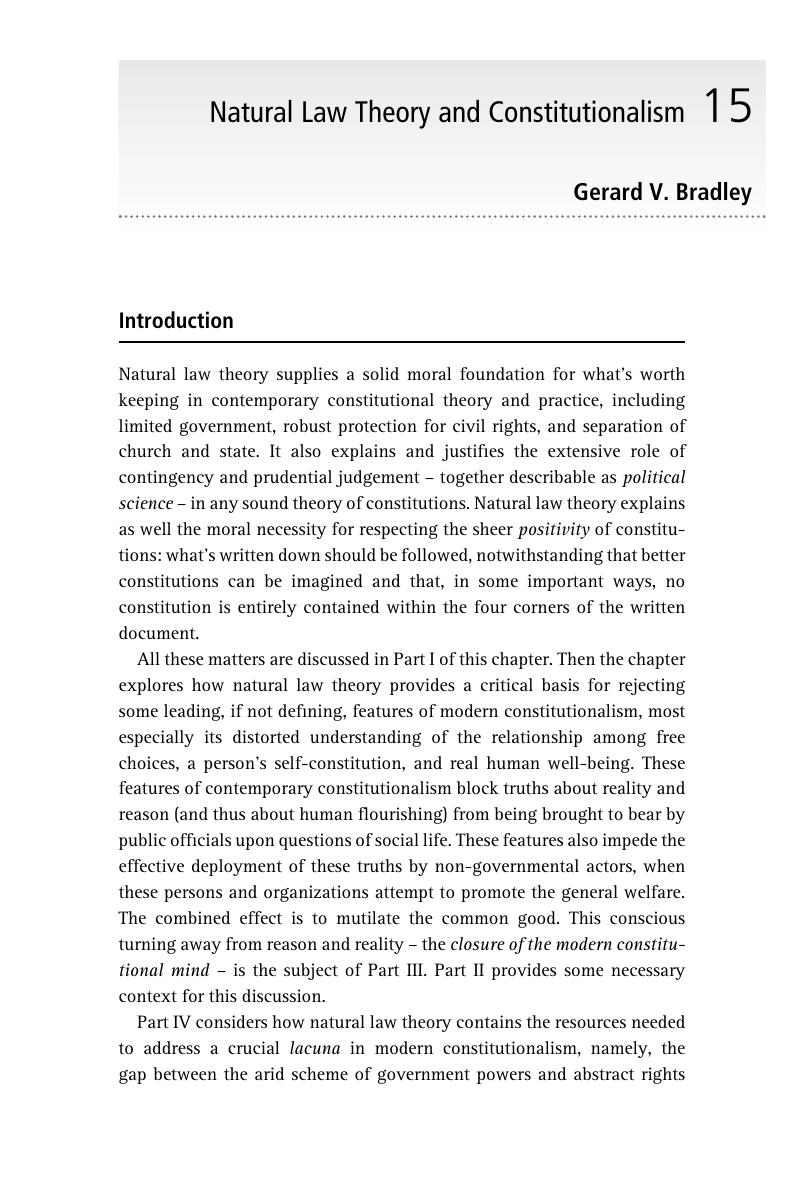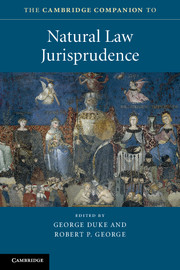Book contents
- The Cambridge Companion to Natural Law Jurisprudence
- Cambridge Companions to Law
- The Cambridge Companion to Natural Law Jurisprudence
- Copyright page
- Contents
- Notes on Contributors
- 1 Introduction
- Part I Foundations
- Part II Practical Reason, Normativity and Ethics
- Part III Law
- 10 Law as an Idea We Live By
- 11 The Moral Impact Theory, the Dependence View and Natural Law
- 12 The Ideal Dimension of Law
- 13 Two Unhappy Dilemmas for Natural Law Jurisprudence
- 14 The Common Good
- 15 Natural Law Theory and Constitutionalism
- 16 Opening the Doors of Inquiry: Lon Fuller and the Natural Law Tradition
- Index
- References
15 - Natural Law Theory and Constitutionalism
from Part III - Law
Published online by Cambridge University Press: 04 July 2017
- The Cambridge Companion to Natural Law Jurisprudence
- Cambridge Companions to Law
- The Cambridge Companion to Natural Law Jurisprudence
- Copyright page
- Contents
- Notes on Contributors
- 1 Introduction
- Part I Foundations
- Part II Practical Reason, Normativity and Ethics
- Part III Law
- 10 Law as an Idea We Live By
- 11 The Moral Impact Theory, the Dependence View and Natural Law
- 12 The Ideal Dimension of Law
- 13 Two Unhappy Dilemmas for Natural Law Jurisprudence
- 14 The Common Good
- 15 Natural Law Theory and Constitutionalism
- 16 Opening the Doors of Inquiry: Lon Fuller and the Natural Law Tradition
- Index
- References
Summary

- Type
- Chapter
- Information
- The Cambridge Companion to Natural Law Jurisprudence , pp. 397 - 427Publisher: Cambridge University PressPrint publication year: 2017
References
Works Cited
- 3
- Cited by

